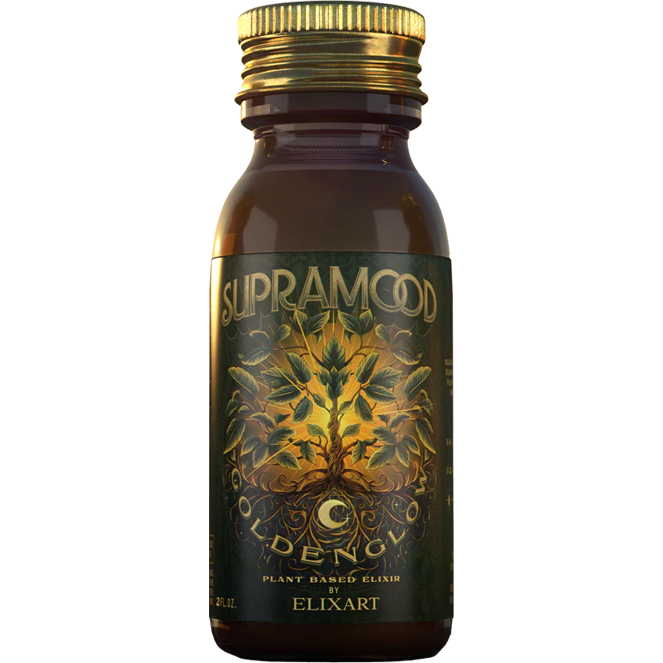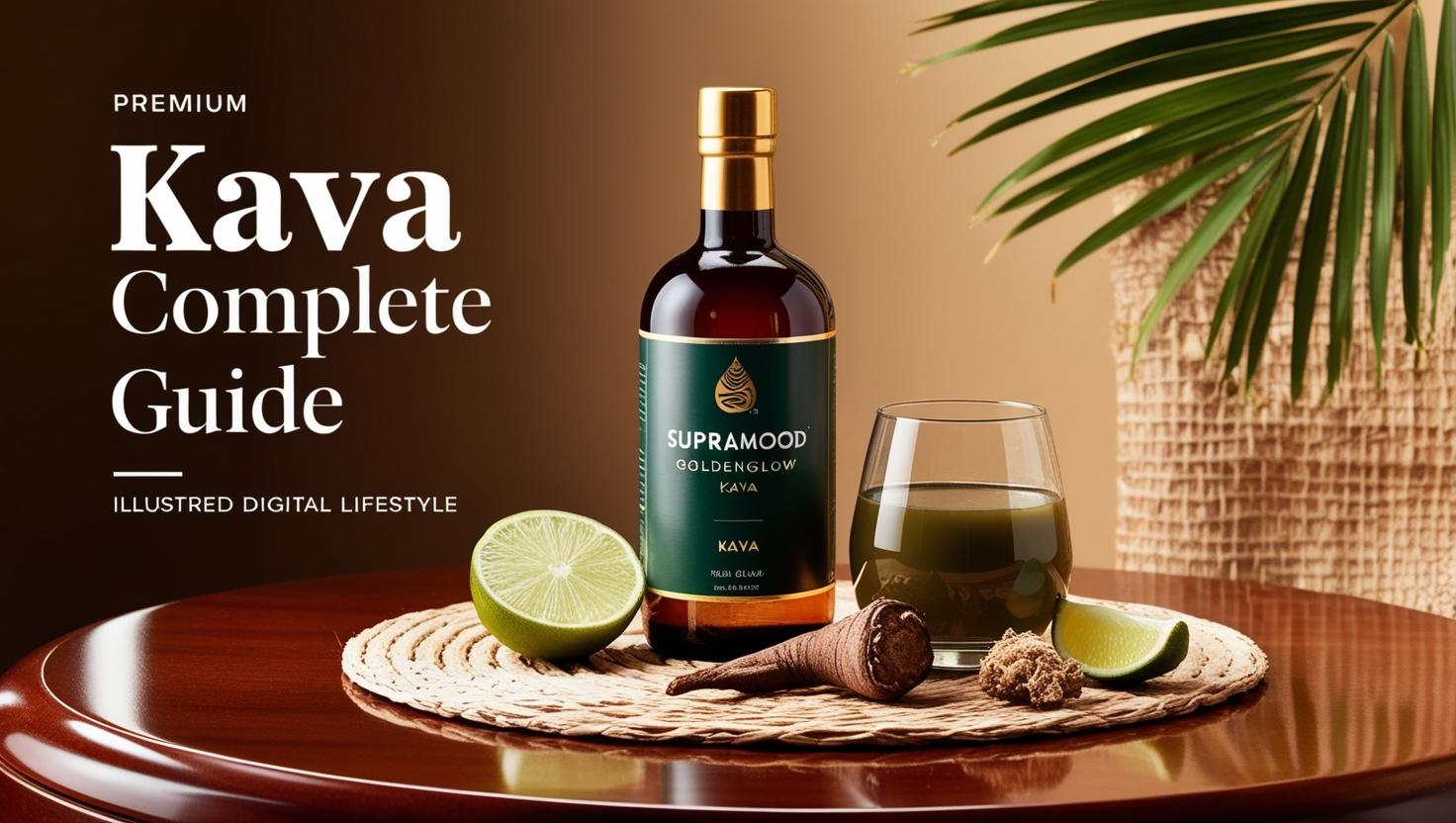Table of Contents
- Introduction to Kava
- Side Effects and Health Risks
-
Usage Tips
- Legal Status of Kava
- Medication Interactions
- Kava Bar Age Limit
- Frequently Asked Questions (FAQs)
- Conclusion
Introduction
After a long, stressful day, some people reach for a glass of wine or perhaps a cup of herbal tea. But in recent years, more and more people are turning to kava, a traditional drink made from the roots of the Piper methysticum plant, for its natural calming effects.
When people talk about kava, they’re usually referring to two main types of kava: Noble Kava and Tudei Kava. Both come from the same plant, but they affect the body quite differently, and vary in safety for regular use.
Noble Kava is considered the gold standard. It’s the traditional choice in the South Pacific, known for its balanced mix of kavalactones, the compounds that bring on kava’s calming effects. Noble kava feels smooth and relaxing, with effects that don’t overstay their welcome or leave you feeling foggy the next day. That’s why it’s the type most commonly found in U.S. kava bars and wellness shops.
Among many of the benefits of kava, One of the most talked-about is its ability to reduce anxiety. Clinical studies show that kava extract can significantly ease anxiety symptoms, sometimes with effects similar to prescription medications but without the same risks of dependency. That makes kava a promising natural alternative for people looking to manage anxiety more gently.
Kava can also improve sleep, especially if stress or racing thoughts keep you tossing and turning. Many users find that after drinking kava, they feel calmer and more grounded, leading to better, more restful sleep. Beyond relaxation and sleep, kava often brings a mild mood boost. It doesn’t cause the euphoria of alcohol or drugs but offers a soothing sense of contentment and emotional balance.
As kava becomes more mainstream, a lot of questions start bubbling to the surface. Can it show up on a drug test? Is it even legal in the U.S.? What does it do to your brain, and are there any health risks involved?
In this blog, we’re going to answer all of those questions and more. We’ll walk through what kava is, how it works, what the science says about its benefits and risks, and everything you should know before making it a part of your wellness routine.
What Are the Side Effects of Kava?
While kava offers plenty of benefits, it’s important to remember it’s not without risks, especially if you overuse it or get it from unreliable sources.
The biggest concern is its potential effect on liver health. Over the years, some cases of liver toxicity have been linked to heavy or long-term kava use. This even led a few countries to temporarily ban kava out of caution. However, newer research shows these liver problems mostly came from poor-quality extracts or using parts of the plant, like stems and leaves, instead of just the roots.
Besides liver issues, kava can cause other side effects such as nausea, upset stomach, headaches, dizziness, or fatigue. Long-term heavy use might lead to a skin condition called kava dermopathy, which makes the skin dry or yellowish.
One more important point, kava can intensify the effects of alcohol, sedatives, or sleep medications. Combining these can cause excessive drowsiness or worse, so it’s best to be cautious.
In short, moderation and quality matter most. Stick to reputable sellers like Supramood offering Noble kava, avoid overuse, and never mix kava with other depressants without consulting a healthcare professional.
Should You Take Kava on an Empty Stomach?
This is a question many new users ask. The simple truth is that kava generally works better on an empty stomach. You might think eating fatty foods would help because the active compounds in kava, called kavalactones, are fat-soluble. But actually, a heavy meal can slow down absorption, meaning you won’t feel kava’s calming effects as quickly or clearly.
Taking kava on an empty stomach allows those kavalactones to be absorbed faster, usually kicking in within 20 to 30 minutes. If you’re sensitive or get queasy easily, having a light snack like fruit or crackers before drinking kava might be a good middle ground.
What Does Kava Do to the Brain?
Kava interacts with the brain’s GABA receptors, the same ones targeted by many anti-anxiety meds. GABA is a neurotransmitter that helps calm the nervous system, so when kava activates these receptors, you feel more relaxed, less anxious, and sometimes a bit euphoric.
Unlike alcohol or strong sedatives, kava doesn’t cloud your thinking. Most people stay mentally clear while feeling physically relaxed. This makes kava popular for those wanting to unwind without losing focus or feeling “out of it.”
Some research also suggests kava can gently boost dopamine, the brain’s feel-good chemical. But unlike addictive substances that spike dopamine and cause crashes, kava’s effect is smoother and more balanced, helping improve mood naturally.
Does Kava Affect Blood Pressure?
Kava can gently relax the muscles around your blood vessels, which might cause a slight drop in blood pressure. For most healthy people, this effect is mild and not a cause for concern.
However, if you’re already on blood pressure medication or have low blood pressure (hypotension), it’s smart to check with your doctor before trying kava. Mixing kava with medications could lower your blood pressure too much, leading to dizziness or feeling tired.
Is Kava Worse for the Liver Than Alcohol?
This question comes up a lot, especially for folks looking for Kava as a safer alternative to alcohol. Both kava and alcohol are processed by the liver, and overdoing either can cause liver damage. But they affect the liver differently.
Kava has been linked to liver problems in rare cases, mostly involving low-quality products that used stems, leaves, or harsh chemical extracts instead of the traditional kava roots. Alcohol, on the other hand, is widely known for its liver toxicity and is a major cause of liver disease worldwide.
When consumed responsibly, especially high-quality Noble kava, kava may actually be gentler on your liver than alcohol. Still, moderation is key. If you drink kava regularly, taking breaks and choosing trusted sources can help protect your liver. And if you have any liver conditions, definitely talk to your doctor before using kava.
Does Kava Lower Cortisol?
Cortisol is the hormone your body releases during stress. High cortisol over time can mess with your sleep, weight, blood pressure, and mood.
Some early research suggests that kava may help lower cortisol by calming your nervous system and reducing stress. While large clinical studies are still needed, many people find that kava helps them relax and feel less overwhelmed.
That calm, stress-relieving feeling after drinking kava might actually be your cortisol levels settling down, making it a natural way to unwind after a hectic day.
What Medications Cannot Be Taken with Kava?

If you’re on medications, it’s important to know that kava can interact with several types, especially those affecting the central nervous system.
Watch out for combining kava with:
Benzodiazepines (e.g., Xanax, Ativan)
Mixing with kava can cause excessive sedation and dangerously slow down the nervous system.
Antidepressants (SSRIs, MAOIs)
Kava may interact unpredictably with antidepressants, increasing the risk of adverse effects.
Sedatives and Sleep Aids
Kava’s calming effects can amplify sedation, leading to drowsiness or impaired coordination.
Liver Medications
Since both kava and certain drugs stress the liver, combining them can raise the risk of liver damage.
Even though kava is natural, it’s crucial to check with your healthcare provider before mixing it with any medications. Safety always comes first.
Is Kava a Drug?
Technically, kava isn’t classified as a drug like prescription medications or recreational narcotics. It’s a plant-based supplement with psychoactive properties, meaning it can affect your brain and mood.
Because kava influences the central nervous system, some organizations, such as certain workplaces or the military, approach it with caution. While kava is generally not detected on standard drug tests, if you’re subject to testing, it’s wise to check with your employer or healthcare provider to be sure.
If you want to learn more about kava and drug tests, read our detailed resource available that explain its relation to drug screening and detection, "Kava vs Drug Tests: Effects, Risks, and Common Myths Debunked."
Is Kava Illegal in the US?
Kava is legal in the United States. You can buy it, drink it, and even visit kava bars in many cities. That said, the legal picture around kava can seem a bit confusing.
While kava is federally legal, the FDA hasn’t officially approved it as a medical treatment or supplement. In the early 2000s, concerns about liver toxicity caused some countries, like Germany, to ban or restrict kava. But in the U.S., it was never banned. Instead, the FDA issued a precautionary warning about potential liver issues.
Today, kava products are widely available in health stores, online, and in natural remedy aisles. To enjoy the full benefits of kava safely, it’s best to choose high-quality Noble kava as Goldenglow rather than lower-grade or unknown blends.
Are Kava Bars Legal?
Yes, kava bars are legal in most parts of the U.S. They’re becoming popular as alcohol-free social spots where people can enjoy the relaxing benefits of kava.
At kava bars, you’ll find traditional kava bowls, teas, and modern flavored blends. These venues often promote wellness and community, offering a chill environment to relax, socialize, or even meditate.
Local rules might differ, with some cities having unique licenses or health regulations, but there’s no federal law stopping kava bars from operating legally.
What Is the Kava Bar Age Limit?
A common question: Do you have to be 21 to visit a kava bar?
It depends. Most set the minimum age at 18 if they don’t serve age-restricted items. Some keep it 21+ to align with alcohol laws or keep a mature vibe.
Kava itself isn’t federally age-restricted, but bars set rules based on local laws, business style, or insurance. If you’re under 21, check with the bar before visiting.
Is Kava Illegal in Any State?
Currently, no U.S. state outright bans kava. However, some states have specific regulations on labeling, health claims, or commercial preparation methods.
If you’re traveling or thinking about opening a kava business, it’s wise to check your state and local health codes. For personal use, though, kava is legal across all 50 states, so you can enjoy its benefits without legal worries.
How Much Kava Should You Take? Safe Dosage Explained

More isn’t always better with kava. The right dose depends on your kava form (powder, capsules, tincture, or brew) and your sensitivity.
Most studies say 250–300 mg of kavalactones per day is effective and safe short term. That’s about one to two cups of kava tea or two to three capsules, depending on the brand.
For drinks like U Relax, servings usually have 250–400 mg of kava, enough to feel calm without drowsiness. But over 400 mg at once, or dosing multiple times a day, can strain your liver and cause sedation.
Using kava regularly? Take breaks every few weeks to give your liver a rest, especially if drinking traditional kava multiple times weekly.
Is 400mg of Kava a Lot?
Not always, it depends on context.
A single 400 mg dose is on the high end but common in traditional or ceremonial use. For beginners or casual users, it’s a strong dose.
If taken daily, 400 mg might be too much unless spaced out with breaks. Think caffeine: a double espresso is fine once in a while, but five a day isn’t great.
Conclusion: What We’ve Learned About Kava Usage
Kava isn’t just another herbal fad, it’s a time-honored tradition that’s making a strong comeback in today’s wellness scene. With its soothing effects and social appeal, it’s quickly carving out a unique space in cafes and bars across the U.S.
But like anything you put in your body, it’s important to understand how kava works. Whether you’re wondering about its influence on drug tests, its effects on the liver, or how much is safe to take, you now have the key facts to make smart, informed choices.
Remember, quality is everything. Choose Noble kava, start with a moderate dose, and if you’re on medication or have health concerns, talk to your healthcare provider first. And if you’re simply looking for a relaxing alternative to alcohol after a long day, kava just might become your new favorite ritual.
Frequently Asked Questions (FAQs)
How long after drinking kava can I take a drug test?
Generally, kava doesn’t show up on standard drug tests. It’s best to wait 24–48 hours if you’re unsure, just in case your test includes advanced panels.
Can I drink kava the night before a drug test?
Yes, but if you’re in the military or under strict screening, it’s best to avoid it just to be cautious.
Does Kava show up on a probation drug test?
Typically no, unless it's a very specialized test. Standard panels don’t look for kavalactones.
What is Kava and how is it traditionally used?
Kava comes from the root of the Piper methysticum plant and is used in Pacific Island ceremonies to promote relaxation and social bonding.
What are the different types of Kava and how do they differ?
There are various types, with Noble kava being the safest. Tudei kava is stronger but can cause side effects like grogginess.
Is Noble Kava safer than Tudei Kava?
Yes, Noble kava is preferred due to its balanced effects and lower risk of side effects.
Can Kava help with anxiety or stress relief?
Absolutely. Kava interacts with GABA receptors to produce calming, anti-anxiety effects.
Does Kava help with sleep disorders like insomnia?
Many users report improved sleep quality after drinking kava in the evening.
Can Kava be used as a natural alternative to anti-anxiety medication?
For some people, yes-but it shouldn’t replace prescribed medications without doctor approval.
What are the short-term and long-term side effects of using Kava?
Short-term effects include relaxation and drowsiness; long-term overuse may affect liver health.
Is it safe to drink Kava daily?
Moderation is key. Many people use it 2–3 times per week safely, but daily use should be monitored.
How long does Kava stay in your system?
Kava effects last 3–6 hours, but trace compounds may linger for up to 24 hours, depending on dosage and metabolism.






Leave a comment
All comments are moderated before being published.
This site is protected by hCaptcha and the hCaptcha Privacy Policy and Terms of Service apply.